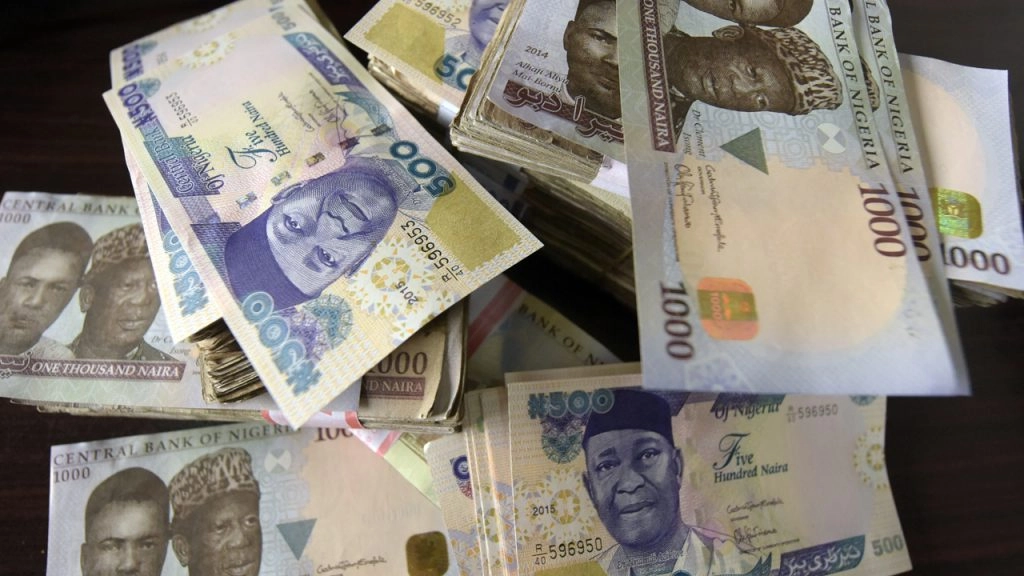The naira, Nigeria’s currency, has been steadily gaining strength in recent days. This surprising upward trend follows key economic actions, such as the Central Bank of Nigeria (CBN) introducing a new trading system and the successful sale of Eurobonds.
But why is this happening, and how long will it last? Let’s explore the factors behind this appreciation and what it means for Nigeria’s economy.
Why is the naira rising?
Earlier this week, the naira appreciated significantly in the Nigerian Foreign Exchange Market (NFEM), moving from ₦1660/$1 on Monday to ₦1625/$1 on Tuesday, and further strengthening to ₦1608/$1 by Wednesday.
This marks a steady improvement in its value, creating optimism among market participants and analysts.
What is driving the appreciation? - Introduction of EFEMS
The Central Bank recently launched the Electronic Foreign Exchange Matching System (EFEMS) to improve transparency and efficiency in the foreign exchange market. This digital platform matches buy and sell orders in real time, making the process fair and efficient.
-
Market experts believe that the EFEMS platform has increased confidence in the FX market by providing clarity and showcasing the true liquidity of dollar supply. This move has curbed speculation and improved access for traders, contributing to the naira’s appreciation.
- Increased Dollar Inflows
Foreign Portfolio Investors (FPIs) have shown renewed interest in Nigeria’s market. High yields on treasury bills, peaking at 30.71% recently, have made naira assets more attractive. As a result, foreign investors are bringing in more dollars, creating additional liquidity in the FX market.
A surge in bids at recent treasury bill auctions is a testament to this activity. On Wednesday, bids reached an impressive ₦2.53 trillion—the highest this year—further strengthening the naira’s position.
- Eurobond Success
The Federal Government’s successful Eurobond issuance has also played a key role. Nigeria raised $2.2 billion, with strong international interest oversubscribing the bonds by $9.1 billion. These funds are expected to boost Nigeria’s foreign exchange reserves, providing further support for the naira. What Should We Expect?
Analysts project that the naira’s appreciation may continue, at least in the short term. Here’s why:
- Sustained Dollar Inflows
The combination of high yields and increased confidence in the EFEMS platform is likely to keep attracting foreign investors. As long as the yields remain competitive and the FX system remains transparent, dollar inflows should persist.
- Stronger Reserves
The proceeds from the Eurobond sales, expected to arrive by December 2024, could push Nigeria’s foreign exchange reserves to over $42 billion by the year’s end. Analysts believe this boost could provide the CBN with more capacity to stabilize and even strengthen the naira further.
- Market Confidence
As transparency in the FX market grows and speculative activities decline, confidence in the naira’s value will likely solidify. If this trend continues, we could see the naira maintain or even extend its gains into early next year.
While the current outlook is positive, there are risks to consider. Sustaining this momentum will require the government and CBN to remain consistent with policies that attract investors and maintain market stability. External factors, such as global economic conditions or changes in oil prices, could also influence the naira’s trajectory.
The Central Bank recently launched the Electronic Foreign Exchange Matching System (EFEMS) to improve transparency and efficiency in the foreign exchange market. This digital platform matches buy and sell orders in real time, making the process fair and efficient.
Market experts believe that the EFEMS platform has increased confidence in the FX market by providing clarity and showcasing the true liquidity of dollar supply. This move has curbed speculation and improved access for traders, contributing to the naira’s appreciation.
Foreign Portfolio Investors (FPIs) have shown renewed interest in Nigeria’s market. High yields on treasury bills, peaking at 30.71% recently, have made naira assets more attractive. As a result, foreign investors are bringing in more dollars, creating additional liquidity in the FX market.
A surge in bids at recent treasury bill auctions is a testament to this activity. On Wednesday, bids reached an impressive ₦2.53 trillion—the highest this year—further strengthening the naira’s position.
- Eurobond Success
The Federal Government’s successful Eurobond issuance has also played a key role. Nigeria raised $2.2 billion, with strong international interest oversubscribing the bonds by $9.1 billion. These funds are expected to boost Nigeria’s foreign exchange reserves, providing further support for the naira. - Sustained Dollar Inflows
The combination of high yields and increased confidence in the EFEMS platform is likely to keep attracting foreign investors. As long as the yields remain competitive and the FX system remains transparent, dollar inflows should persist. - Stronger Reserves
The proceeds from the Eurobond sales, expected to arrive by December 2024, could push Nigeria’s foreign exchange reserves to over $42 billion by the year’s end. Analysts believe this boost could provide the CBN with more capacity to stabilize and even strengthen the naira further. - Market Confidence
As transparency in the FX market grows and speculative activities decline, confidence in the naira’s value will likely solidify. If this trend continues, we could see the naira maintain or even extend its gains into early next year.
What Should We Expect?
Analysts project that the naira’s appreciation may continue, at least in the short term. Here’s why:
While the current outlook is positive, there are risks to consider. Sustaining this momentum will require the government and CBN to remain consistent with policies that attract investors and maintain market stability. External factors, such as global economic conditions or changes in oil prices, could also influence the naira’s trajectory.




